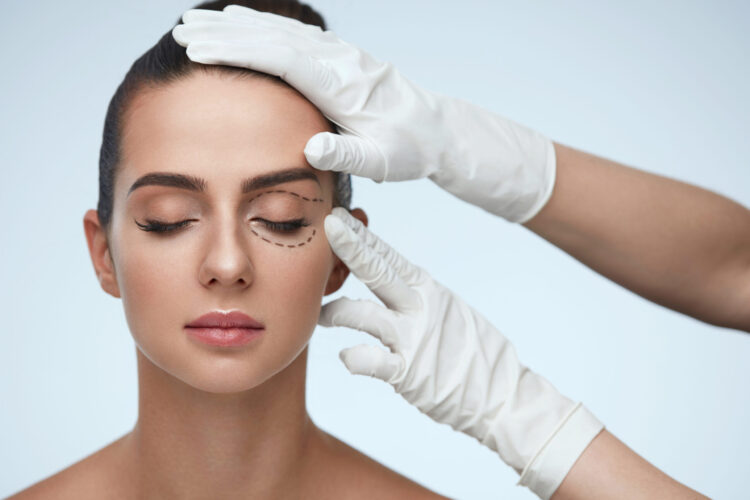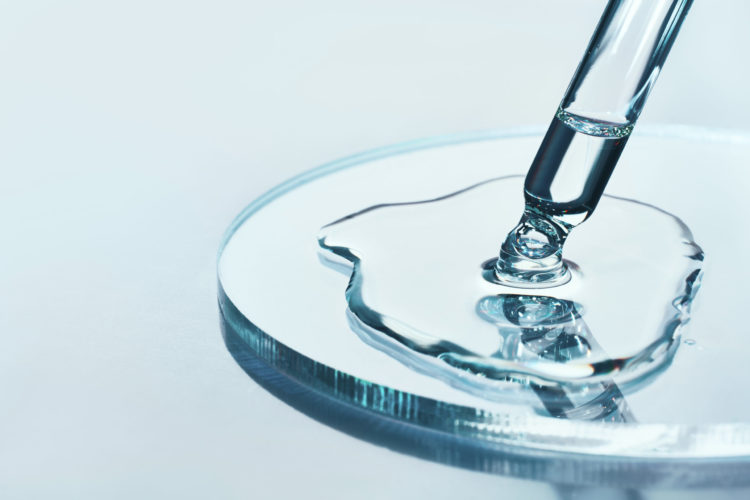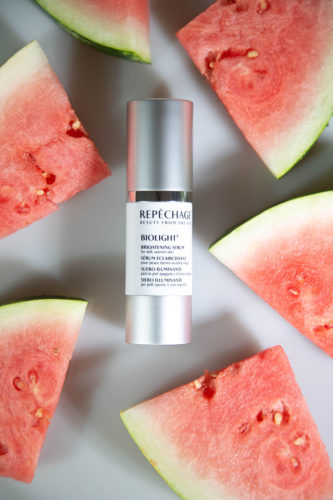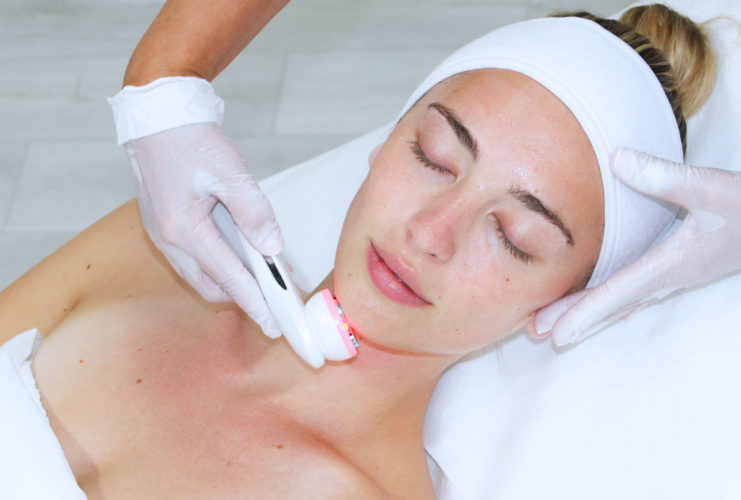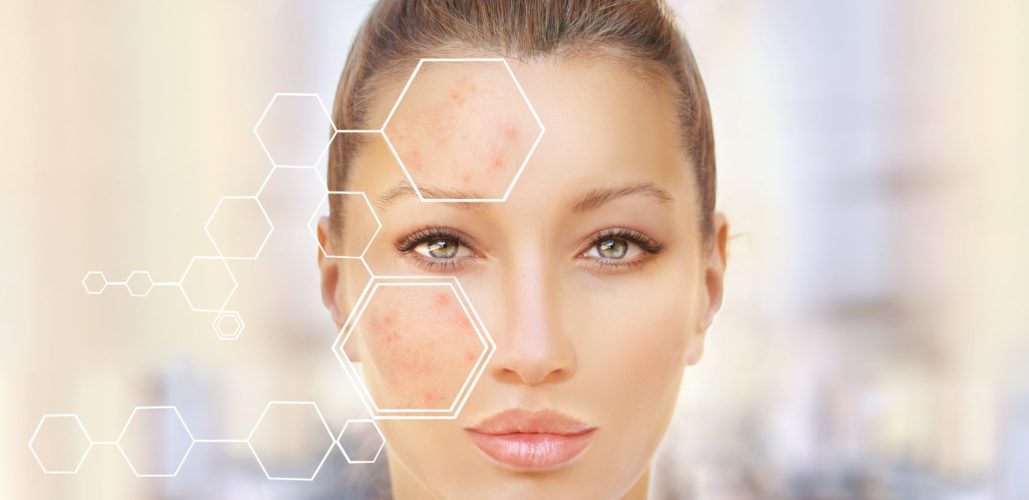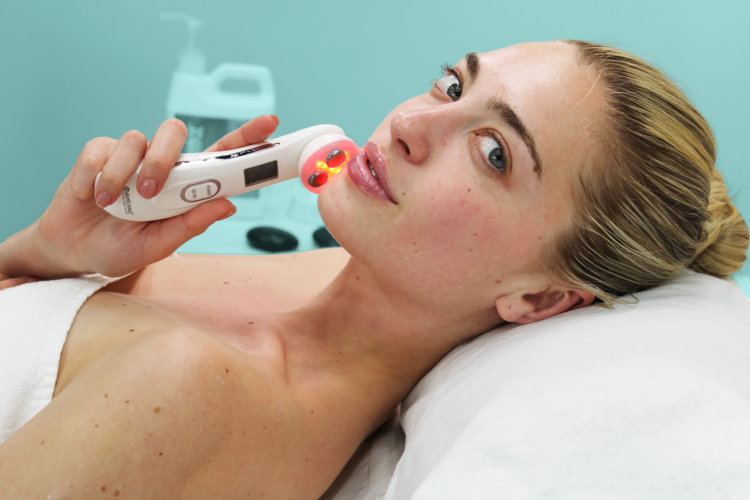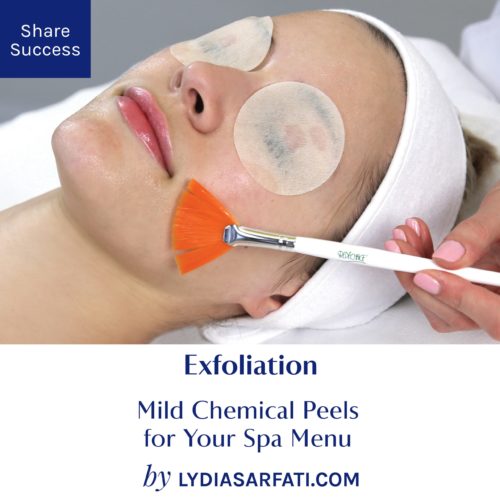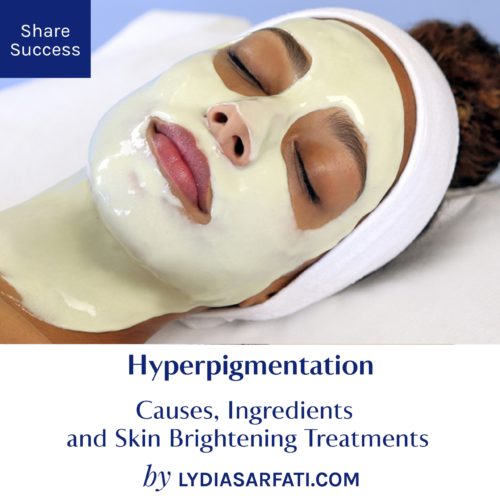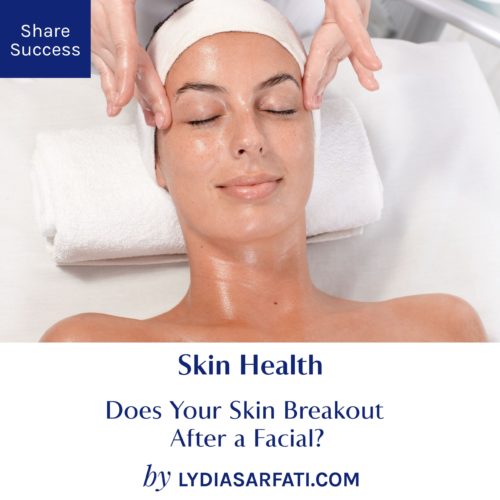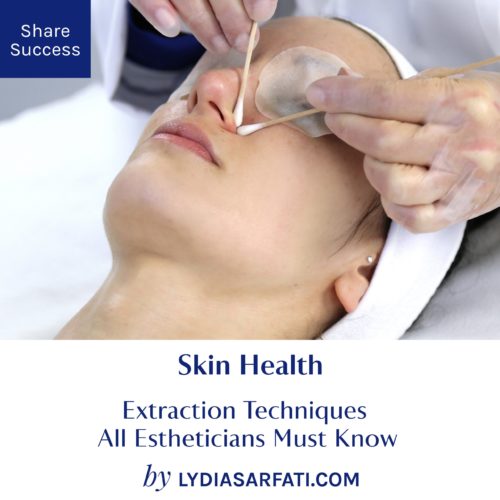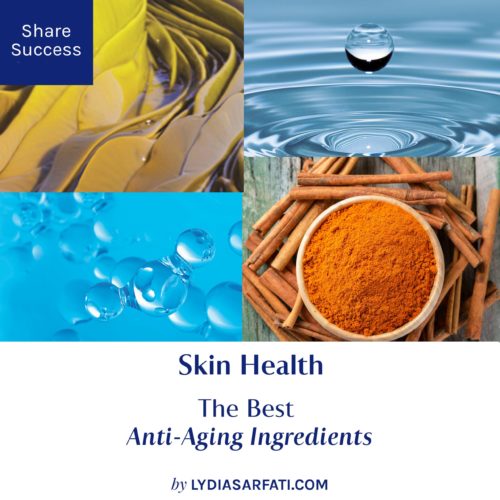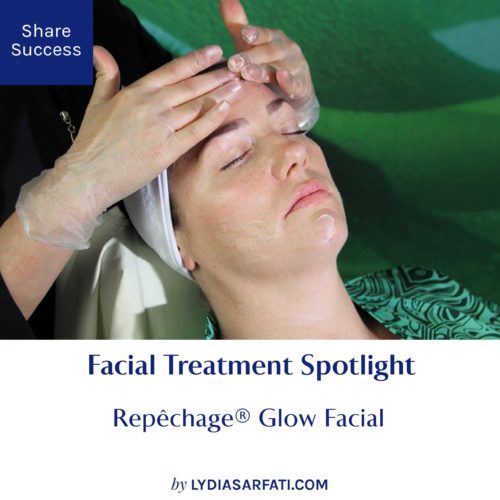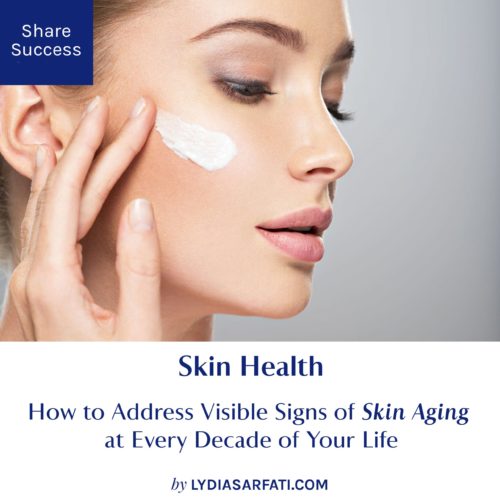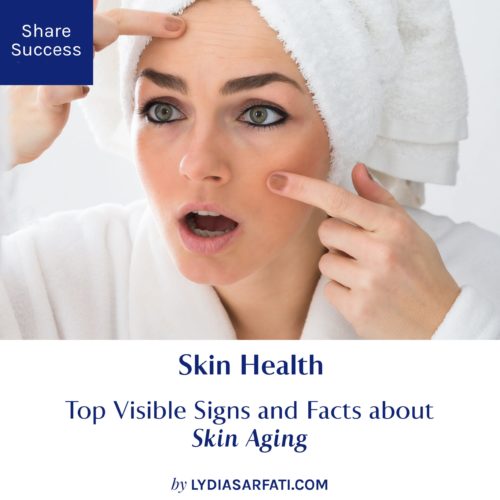All Ages Need Preventative Aging Skin Care
While we, as estheticians, need to address very specific skin care concerns of our clients on a daily basis, from acne breakouts to dry, compromised skin, preventative aging treatments continue…
Peptides Vs. Retinol
Retinols and “retinol sandwiches” have been in the news for the past few years, touting ways to control and minimize adverse reactions to retinol while reaping the anti-aging benefits of…
Recharge Thirsty Skin with Electrolyte-Rich Seaweed-Based Treatments
Everyone is looking for ways to both enervate their bodies and skin. Like sport rehydration drinks, electrolytes are emerging as an important skin care ingredient to help to rehydrate and…
How to Refresh Your Summer Menu with Summer Inspired Treatments
Nothing says summer more than a thick wedge of cool watermelon or a strawberry daiquiri at the beach. But there is more to these than fun in the surf and (protected)…
Skincare Benefits of LED with EMS versus using Microcurrent
According to Mintel, in the US, 75% of female consumers currently use, or are interested in trying, a skin care device. These electronic implements can have multiple of benefits to…
The Importance of pH in Skin Care and the Skin Barrier
As a professional esthetician, understanding pH and its effects on the skin is an integral part of education. Studies have shown that pH is not only an important factor in…
Power Up Your Facial Treatments with LED Technology
Many estheticians globally are now using the Repêchage LED Radio Frequency and EMS Skin Tightening Machine both in their practice as well as teaching their clients how to use the…
Sensitive Skin: Sensitive Skin Conditions, Causes, and How to Care for Sensitive Skin
As a Master Esthetician with over 40 years of experience, I know that one of the most important modalities the esthetician must master is how to properly identify and address sensitive skin concerns. As an esthetician, you should be able to clearly identify sensitive skin types and create a plan of action to provide clients with the best possible skin care results .Read below to learn about how to identify sensitive skin, sensitive skin conditions, what causes sensitive skin, and the best treatments for sensitive skin.
Exfoliation: Mild Chemical Peels for Your Spa Menu
When considering chemical peels you need to consider the health of the skin’s natural protective barrier. By their nature, chemical peels are intrusive to the skin’s barrier in varying degrees. Learn about mild chemical peel options for your spa menu.
Hyperpigmentation: Causes, Brightening Ingredients, and Skin Brightening Treatments
Summer is officially over and we know what this means for estheticians – many clients have sun damaged skin, particularly skin with signs of hyperpigmentation. As an esthetician, it is important for you to understand how hyperpigmentation occurs, the best skin brightening ingredients, and what skin care services are available to your clients to help minimize the appearance of sun damage.
Does Your Skin Breakout After a Facial?
“Will a facial cause me to breakout?” Throughout my career I have heard this question from clients and from time to time have estheticians ask me this question as well. Learn why clients and estheticians should not worry about experiencing severe breakouts after a facial.
Extraction Techniques all Estheticians Must Know
Performing extractions properly is one of the most important skills we can have as an esthetician. This month I want to share extraction tips that all estheticians should be following. These tips make the extraction process easier for professionals and leave clients fully satisfied with their facial results.
The Best Anti-aging Ingredients
The best ingredients for anti-aging! Learn about the advancements in skin care ingredients that offer natural, non-invasive alternatives to address visible signs of aging and restore skin’s youthful appearance.
Facial Treatment Spotlight: New! Repêchage® Glow Facial
I am very excited to introduce the new Repêchage® Glow Facial—a new facial that deep cleanses, brightens, and restores moisturize in just 30-40 minutes! Learn about the skin benefits of this facial, the key products in the treatment, and how to perform the facial so that you can offer a new express treatment that will leave your clients with glowing skin.
Aging Skin: How to Address Visible Signs of Aging Skin at Every Decade
Lessening the appearance of visible signs of aging is more than just reducing the appearance of wrinkles.We must look at the entire complexion, addressing the skin’s tone, clarity and color. Learn how to address visible signs of aging skin at any age.
Aging Skin: Visible Signs of Skin Aging and Facts about Skin Aging
Learn the characteristics of aging skin and what happens to your skin as you age.
Sensitive Skin: 5 Things to Know About This Skin Type
Sensitive skin is a broad term ranging from easily irritated skin to conditions such as eczema and rosacea. While estheticians cannot diagnose, prescribe or treat skin conditions or diseases it is important to know these five facts about this skin type so that you can provide your clients with the best skin care possible.
Skin Care Superfoods: Seaweed | Skin Health
At Repêchage, we have known about seaweed as a super-ingredient for skin care for decades. Today, seaweed is one of the emerging new superfoods. This week I want to share with you the skincare, antioxidant, health and nutritional benefits that make seaweed an amazing superfood for your skin and diet.
How Diet Affects Skin
Healthy skin starts from within! Read to learn how diet affects aging skin, the benefits of antioxidants and whole foods, and tips on how to maintain a proper diet.
Hyperpigmentation: Top Questions Answered
Seeing spots? Although the sun isn’t the only cause of dark spots, this time of year is a popular time for clients to come into the spa seeking a solution for their uneven skin tone. Lydia Sarfati answers top questions relating to hyperpigmentation, dark spots and dull, uneven skin.
Hybrid Peels: A New Type of Chemical Peel for Great Results and Less Irritation
According to the American Society of Plastic Surgeons, there were 1.3 million chemical peel procedures in 2016, up 5 percent from 2014 and 14 percent since 2000. Just as peels are becoming more and more prevalent, so are signs of irritation and possible over-exfoliation. In fact, irritated, over-exfoliated skin from over-aggressive peels, or at-home peels performed incorrectly are now main reasons clients come to see an esthetician. To avoid over exfoliation, today there are gentle and effective hybrid peels available for estheticians to perform that cost less and provide real results without the irritation.
Hyperpigmentation: Are Age Spots the New Wrinkles?
While historically women and men would come to the salon or spa at the sight of their first wrinkle, age spots that show up on face, hands and chest, are driving in more and more clients. Not only is the incidence of age spots increasing, the demographic is getting younger! Learn about the science behind age spots, what causes them, and professional treatments for age spots.
Thalassotherapy: The Benefits of Seaweed and Seawater
Your spa doesn’t need to be located near the ocean to provide your client with the benefits of the sea. Learn about the benefits of seaweed and seawater and how you can create thalassotherapy-like treatments using professional seaweed-based face and body treatments.
Acne & Problem Skin: How to Perform Extractions
According to the American Academy of Dermatology, about 40 million to 50 million Americans have acne at one time, making it the most common skin condition in the United States. Performing consistent effective facial treatments will not only benefit the client’s overall appearance, but will also help bolster their self-esteem. While estheticians do not diagnose or treat acne, they must be aware of this skin condition and know how to properly provide a facial for problem skin.
Summer Skin Care: Top Questions Answered
Summer is one of the most problematic times of year for our skin – many clients experience overexposure to the sun, uneven skin tone, skin redness, and problem skin. Learn how to address these skin concerns and skin care advice you can offer to clients.
